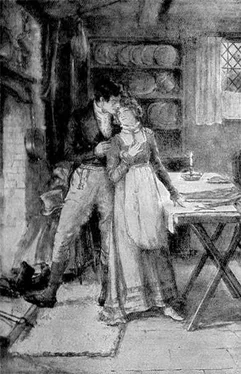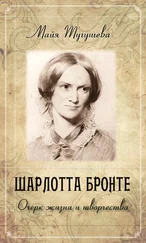Шарлотта Бронте - Shirley
Здесь есть возможность читать онлайн «Шарлотта Бронте - Shirley» весь текст электронной книги совершенно бесплатно (целиком полную версию без сокращений). В некоторых случаях можно слушать аудио, скачать через торрент в формате fb2 и присутствует краткое содержание. Год выпуска: 2014, Издательство: epubBooks Classics, Жанр: Классическая проза, на английском языке. Описание произведения, (предисловие) а так же отзывы посетителей доступны на портале библиотеки ЛибКат.
- Название:Shirley
- Автор:
- Издательство:epubBooks Classics
- Жанр:
- Год:2014
- ISBN:нет данных
- Рейтинг книги:3 / 5. Голосов: 1
-
Избранное:Добавить в избранное
- Отзывы:
-
Ваша оценка:
- 60
- 1
- 2
- 3
- 4
- 5
Shirley: краткое содержание, описание и аннотация
Предлагаем к чтению аннотацию, описание, краткое содержание или предисловие (зависит от того, что написал сам автор книги «Shirley»). Если вы не нашли необходимую информацию о книге — напишите в комментариях, мы постараемся отыскать её.
Shirley — читать онлайн бесплатно полную книгу (весь текст) целиком
Ниже представлен текст книги, разбитый по страницам. Система сохранения места последней прочитанной страницы, позволяет с удобством читать онлайн бесплатно книгу «Shirley», без необходимости каждый раз заново искать на чём Вы остановились. Поставьте закладку, и сможете в любой момент перейти на страницу, на которой закончили чтение.
Интервал:
Закладка:
Such assiduity covered Miss Keeldar with distinction. Her uncle's prophetic soul anticipated a splendid future. He already scented the time afar off when, with nonchalant air, and left foot nursed on his right knee, he should be able to make dashingly–familiar allusion to his "nephew the baronet." Now his niece dawned upon him no longer "a mad girl," but a "most sensible woman." He termed her, in confidential dialogues with Mrs. Sympson, "a truly superior person; peculiar, but very clever." He treated her with exceeding deference; rose reverently to open and shut doors for her; reddened his face and gave himself headaches with stooping to pick up gloves, handkerchiefs, and other loose property, whereof Shirley usually held but insecure tenure. He would cut mysterious jokes about the superiority of woman's wit over man's wisdom; commence obscure apologies for the blundering mistake he had committed respecting the generalship, the tactics, of "a personage not a hundred miles from Fieldhead." In short, he seemed elate as any "midden–cock on pattens."
His niece viewed his manœuvres and received his innuendoes with phlegm; apparently she did not above half comprehend to what aim they tended. When plainly charged with being the preferred of the baronet, she said she believed he did like her, and for her part she liked him. She had never thought a man of rank—the only son of a proud, fond mother, the only brother of doting sisters—could have so much goodness, and, on the whole, so much sense.
Time proved, indeed, that Sir Philip liked her. Perhaps he had found in her that "curious charm" noticed by Mr. Hall. He sought her presence more and more, and at last with a frequency that attested it had become to him an indispensable stimulus. About this time strange feelings hovered round Fieldhead; restless hopes and haggard anxieties haunted some of its rooms. There was an unquiet wandering of some of the inmates among the still fields round the mansion; there was a sense of expectancy that kept the nerves strained.
One thing seemed clear: Sir Philip was not a man to be despised. He was amiable; if not highly intellectual, he was intelligent. Miss Keeldar could not affirm of him, what she had so bitterly affirmed of Sam Wynne, that his feelings were blunt, his tastes coarse, and his manners vulgar. There was sensibility in his nature; there was a very real, if not a very discriminating, love of the arts; there was the English gentleman in all his deportment. As to his lineage and wealth, both were, of course, far beyond her claims.
His appearance had at first elicited some laughing though not ill–natured remarks from the merry Shirley. It was boyish. His features were plain and slight, his hair sandy, his stature insignificant. But she soon checked her sarcasm on this point; she would even fire up if any one else made uncomplimentary allusion thereto. He had "a pleasing countenance," she affirmed; "and there was that in his heart which was better than three Roman noses, than the locks of Absalom or the proportions of Saul." A spare and rare shaft she still reserved for his unfortunate poetic propensity; but even here she would tolerate no irony save her own.
In short, matters had reached a point which seemed fully to warrant an observation made about this time by Mr. Yorke to the tutor, Louis.
"Yond' brother Robert of yours seems to me to be either a fool or a madman. Two months ago I could have sworn he had the game all in his own hands; and there he runs the country, and quarters himself up in London for weeks together, and by the time he comes back he'll find himself checkmated. Louis, 'there is a tide in the affairs of men, which, taken at the flood, leads on to fortune, but, once let slip, never returns again.' I'd write to Robert, if I were you, and remind him of that."
"Robert had views on Miss Keeldar?" inquired Louis, as if the idea was new to him.
"Views I suggested to him myself, and views he might have realized, for she liked him."
"As a neighbour?"
"As more than that. I have seen her change countenance and colour at the mere mention of his name. Write to the lad, I say, and tell him to come home. He is a finer gentleman than this bit of a baronet, after all."
"Does it not strike you, Mr. Yorke, that for a mere penniless adventurer to aspire to a rich woman's hand is presumptuous—contemptible?"
"Oh, if you are for high notions and double–refined sentiment, I've naught to say. I'm a plain, practical man myself, and if Robert is willing to give up that royal prize to a lad–rival—a puling slip of aristocracy—I am quite agreeable. At his age, in his place, with his inducements, I would have acted differently. Neither baronet, nor duke, nor prince should have snatched my sweetheart from me without a struggle. But you tutors are such solemn chaps; it is almost like speaking to a parson to consult with you."
Flattered and fawned upon as Shirley was just now, it appeared she was not absolutely spoiled—that her better nature did not quite leave her. Universal report had indeed ceased to couple her name with that of Moore, and this silence seemed sanctioned by her own apparent oblivion of the absentee; but that she had not quite forgotten him—that she still regarded him, if not with love, yet with interest—seemed proved by the increased attention which at this juncture of affairs a sudden attack of illness induced her to show that tutor–brother of Robert's, to whom she habitually bore herself with strange alternations of cool reserve and docile respect—now sweeping past him in all the dignity of the moneyed heiress and prospective Lady Nunnely, and anon accosting him as abashed school–girls are wont to accost their stern professors; bridling her neck of ivory and curling her lip of carmine, if he encountered her glance, one minute, and the next submitting to the grave rebuke of his eye with as much contrition as if he had the power to inflict penalties in case of contumacy.
Louis Moore had perhaps caught the fever, which for a few days laid him low, in one of the poor cottages of the district, which he, his lame pupil, and Mr. Hall were in the habit of visiting together. At any rate he sickened, and after opposing to the malady a taciturn resistance for a day or two, was obliged to keep his chamber.
He lay tossing on his thorny bed one evening, Henry, who would not quit him, watching faithfully beside him, when a tap—too light to be that of Mrs. Gill or the housemaid—summoned young Sympson to the door.
"How is Mr. Moore to–night?" asked a low voice from the dark gallery.
"Come in and see him yourself."
"Is he asleep?"
"I wish he could sleep. Come and speak to him, Shirley."
"He would not like it."
But the speaker stepped in, and Henry, seeing her hesitate on the threshold, took her hand and drew her to the couch.
The shaded light showed Miss Keeldar's form but imperfectly; yet it revealed her in elegant attire. There was a party assembled below, including Sir Philip Nunnely; the ladies were now in the drawing–room, and their hostess had stolen from them to visit Henry's tutor. Her pure white dress, her fair arms and neck, the trembling chainlet of gold circling her throat and quivering on her breast, glistened strangely amid the obscurity of the sickroom. Her mien was chastened and pensive. She spoke gently.
"Mr. Moore, how are you to–night?"
"I have not been very ill, and am now better."
"I heard that you complained of thirst. I have brought you some grapes; can you taste one?"
"No; but I thank you for remembering me."
"Just one."
From the rich cluster that filled a small basket held in her hand she severed a berry and offered it to his lips. He shook his head, and turned aside his flushed face.
Читать дальшеИнтервал:
Закладка:
Похожие книги на «Shirley»
Представляем Вашему вниманию похожие книги на «Shirley» списком для выбора. Мы отобрали схожую по названию и смыслу литературу в надежде предоставить читателям больше вариантов отыскать новые, интересные, ещё непрочитанные произведения.
Обсуждение, отзывы о книге «Shirley» и просто собственные мнения читателей. Оставьте ваши комментарии, напишите, что Вы думаете о произведении, его смысле или главных героях. Укажите что конкретно понравилось, а что нет, и почему Вы так считаете.











